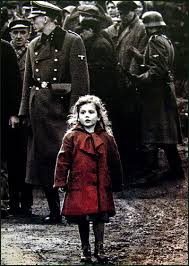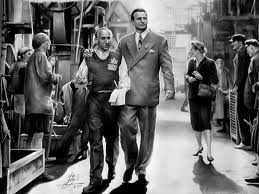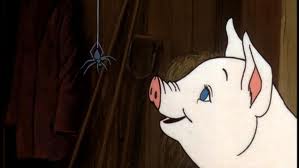Schindler’s List (1993)
Oskar Schindler- womaniser, businessman, and Nazi has taken advantage of the cheap labour force in Polish territory during World War II. His aim is to make as much money as possible from the war but unintentionally develops a connection with his workers as he begins to resent Nazi rule. At his own risk, he employs Jewish families in his workshops and factories, often in positions in which they would otherwise be unqualified. Bribing Nazi officials and other businessmen with money and the promise of increased business, Schindler produces a list of names and saves over 1000 Polish-Jewish refugees destined to Auschwitz during the Holocaust. Based on a true story, Schindler finds himself questioning his morals, ethics and obligations as a human being.
Kant describes Schindler’s moralistic circumstances as a kind of absolute law all humans should obey, which can be applied to all situations, regardless of the circumstance (Kitcher, 2001). He calls this the Categorical Imperative- a universal rule in which one acts for the sake of duty alone and not to receive any kind of reward. Kant also reasons that we should always treat others in an end in themselves, never merely as a means (Teays, 2012). In the beginning of the movie, Schindler disobeys Kant’s humanitarian principle of ethics by exploiting Polish Jews as cheap labour in the bid to make money out of the war.
It can be argued perhaps that Schindler’s actions or motivations can be better described by Kant’s Hypothetical Imperative which takes on the conditional form- to achieve goal a, then you must perform act x (Johnson, 2012). Schindler to save these people from certain death (goal a), he must lie, blackmail and ‘employ’ Polish Jews (act x).
Toward the end, Schindler risks his own life to forsake the lives of others, and has no financial gain as his fortunes have been spent and he leaves the country almost as poor as those who he has saved, yet wealthy in spirit with the knowledge he has made a difference.
References
Johnson, R. (2012). Kant’s Moral Philosophy. In E. N. Zalta (Ed.), The Stanford Encyclopedia of Philosophy. Retrieved from http://plato.stanford.edu/archives/sum2012/entries/kant-moral/
Kitcher, P. (2001). Immanuel Kant (1724-1804). In S. M. Emmanuel (Ed.), The Blackwell Guide to the Modern Philosophers: From Descartes to Nietzsche. Massachusetts, USA: Blackwell Publishers Inc.
Teays, W. (2012). Seeing the light: Exploring ethics through movies. Malden, MA: Wiley-Blackwell.
Zaillian, S. (Screenplay), Keneally, T. (Book), & Spielberg, S. (Director).(1993). Schindler’s List [DVD]. United States of America: Universal Pictures.














